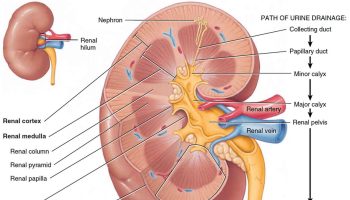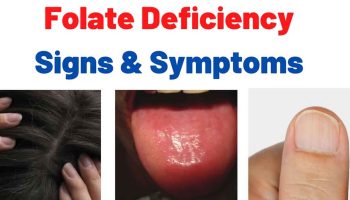Contents
What is dysthymia
Dysthymia is also known as persistent depressive disorder or a continuous long-term (chronic) form of depression characterized by depressed mood that occurs for most of the day, for more days than not, for at least 2 years, or at least 1 year for children and adolescents. Your moods are generally low for at least 2 years. Your depression is usually mild or moderate, rather than severe. Most people who have persistent depressive disorder can’t tell for sure when they first became depressed. You may lose interest in normal daily activities, feel hopeless, lack productivity, and have low self-esteem and an overall feeling of inadequacy. These feelings last for years and may significantly interfere with your relationships, school, work and daily activities.
Individuals with persistent depressive disorder (dysthymia) describe their mood as sad or “down in the dumps. ” During periods of depressed mood, at least two of the six symptoms are present.
- 1 . Poor appetite or overeating.
- 2. Insomnia or hypersomnia.
- 3. Low energy or fatigue.
- 4 . Low self-esteem .
- 5. Poor concentration or difficulty making decisions.
- 6. Feelings of hopelessness.
Because these symptoms have become a part of your day-to-day experience, particularly in the case of early onset (e.g., “I’ve always been this way”), they may not be reported unless the person is directly prompted. During the 2-year period (1 year for children or adolescents), any symptom-free intervals last no longer than 2 months. But if you have any symptoms of persistent depressive disorder, seek medical help immediately. Talk to your primary care doctor about your symptoms. Or seek help directly from a mental health provider. If you’re reluctant to see a mental health professional, reach out to someone else who may be able to help guide you to treatment, whether it’s a friend or loved one, a teacher, a faith leader, or someone else you trust.
- If you think you may hurt yourself or attempt suicide, call your local emergency number immediately.
Dysthymia (persistent depressive disorder) often has an early and insidious onset (i.e., in childhood, adolescence, or early adult life) and, by definition, a chronic course. Early onset (i.e., before age 21 years) is associated with a higher likelihood of comorbid personality disorders and substance use disorders.
If you have persistent depressive disorder, you may find it hard to be upbeat even on happy occasions — you may be described as having a gloomy personality, constantly complaining or incapable of having fun. Though persistent depressive disorder is not as severe as major depression, your current depressed mood may be mild, moderate or severe.
Because of the chronic nature of dysthymia depression, coping with depression symptoms can be challenging, but a combination of talk therapy (psychotherapy) and medication can be effective in treating this condition.
When symptoms rise to the level of a major depressive episode, they are likely to subsequently revert to a lower level. However, depressive symptoms are much less likely to resolve in a given period of time in the context of persistent depressive disorder than they are in a major depressive episode.
Persistent depressive disorder is a fairly common type of depression. It is estimated that up to 4% of people have it. The 12-month prevalence in the United States is approximately 0.5% for persistent depressive disorder and 1 .5% for chronic major depressive disorder. Dysthymia can begin in childhood or in adulthood. No one knows why, but like most types of depression, it appears to be more common in women.
If you feel depressed, make an appointment to see your doctor or mental health professional as soon as you can. If you’re reluctant to seek treatment, talk to a friend or loved one, any health care professional, a faith leader, or someone else you trust.
Dysthymia (Persistent depressive disorder) DSM 5 Diagnostic Criteria
- A. Depressed mood for most of the day, for more days than not, as indicated by either subjective account or observation by others, for at least 2 years.
Note: In children and adolescents, mood can be irritable and duration must be at least 1 year. - B. Presence , while depressed, of two (or more) of the following:
- 1 . Poor appetite or overeating.
- 2. Insomnia or hypersomnia.
- 3. Low energy or fatigue.
- 4 . Low self-esteem .
- 5. Poor concentration or difficulty making decisions.
- 6. Feelings of hopelessness.
- C. During the 2-year period (1 year for children or adolescents) of the disturbance, the individual has never been without the symptoms in Criteria A and B for more than 2 months at a time.
- D . Criteria for a major depressive disorder may be continuously present for 2 years.
- E . There has never been a manic episode or a hypomanic episode, and criteria have never been met for cyclothymic disorder.
F. The disturbance is not better explained by a persistent schizoaffective disorder, schizophrenia, delusional disorder, or other specified or unspecified schizophrenia spectrum and other psychotic disorder. - G. The symptoms are not attributable to the physiological effects of a substance (e.g., a drug of abuse, a medication) or another medical condition (e.g. hypothyroidism).
- H. The symptoms cause clinically significant distress or impairment in social, occupational, or other important areas of functioning.
Note: Because the criteria for a major depressive episode include four symptoms that are absent from the symptom list for persistent depressive disorder (dysthymia), a very limited number of individuals will have depressive symptoms that have persisted longer than 2 years but will not meet criteria for persistent depressive disorder. If full criteria for a major depressive episode have been met at some point during the current episode of illness, they should be given a diagnosis of major depressive disorder. Otherwise, a diagnosis of other specified depressive disorder or unspecified depressive disorder is warranted.
Current severity:
- Mild
- Moderate
- Severe
Specify if:
- With anxious distress
- With mixed features
- With melancholic features
- With atypical features
- With mood-congruent psychotic features
- With mood-incongruent psychotic features
- With peripartum onset
Specify if:
- In partial remission
- In full remission
Specify if:
- Early onset: If onset is before age 21 years.
- Late onset: If onset is at age 21 years or older.
Specify if (for most recent 2 years of persistent depressive disorder):
- With pure dysthymic syndrome: Full criteria for a major depressive episode have not been met in at least the preceding 2 years.
- With persistent major depressive episode: Full criteria for a major depressive episode have been met throughout the preceding 2-year period.
- With intermittent major depressive episodes, with current episode: Full criteria for a major depressive episode are currently met, but there have been periods of at least 8 weeks in at least the preceding 2 years with symptoms below the threshold for a full major depressive episode.
- With intermittent major depressive episodes, without current episode: Full criteria for a major depressive episode are not currently met, but there has been one or more major depressive episodes in at least the preceding 2 years.
Dysthymia vs Depression
Dysthymia is a sub-type of depression, dysthymia is a continuous long-term (chronic) form of depression called “persistent depressive disorder.” There are five main types of depression:
- Major depressive disorder
- Major depressive disorder (with melancholia)
- Psychotic depression
- Persistent depressive disorder (Dysthymia)
- Perinatal depression (also called antenatal and postnatal depression).
Depression is a common and debilitating mood disorder. More than just sadness in response to life’s struggles and setbacks, depression changes how you think, feel, and function in daily activities. Depression can interfere with your ability to work, study, eat, sleep, and enjoy life. The feelings of helplessness, hopelessness, and worthlessness can be intense and unrelenting, with little, if any, relief.
While some people describe depression as “living in a black hole” or having a feeling of impending doom, others feel lifeless, empty, and apathetic. Men in particular can feel angry and restless. No matter how you experience depression, left untreated it can become a serious health condition. But it’s important to remember that feelings of helplessness and hopelessness are symptoms of depression—not the reality of your situation. There are plenty of powerful self-help steps you can take to lift your mood, overcome depression, and regain your joy of life.
Signs and symptoms of depression
You may be depressed if, for more than two weeks, you’ve felt sad, down or miserable most of the time, or have lost interest or pleasure in usual activities, and have also experienced several of the signs and symptoms across at least three of the categories below.
It’s important to remember that we all experience some of these symptoms from time to time, and it may not necessarily mean you’re depressed. Equally, not everyone who is experiencing depression will have all of these symptoms.
Although depression may occur only once during your life, people typically have multiple episodes. During these episodes, symptoms occur most of the day, nearly every day and may include:
Behavior
- not going out anymore
- not getting things done at work/school
- withdrawing from close family and friends
- relying on alcohol and sedatives
- not doing usual enjoyable activities
- unable to concentrate
Feelings
- overwhelmed
- guilty
- irritable
- frustrated
- lacking in confidence
- unhappy
- indecisive
- disappointed
- miserable
- sad
Thoughts
- ‘I’m a failure.’
- ‘It’s my fault.’
- ‘Nothing good ever happens to me.’
- ‘I’m worthless.’
- ‘Life’s not worth living.’
- ‘People would be better off without me.’
Physical
- tired all the time
- sick and run down
- headaches and muscle pains
- churning gut
- sleep problems
- loss or change of appetite
- significant weight loss or gain
Depression symptoms in children and teens
Common signs and symptoms of depression in children and teenagers are similar to those of adults, but there can be some differences.
- In younger children, symptoms of depression may include sadness, irritability, clinginess, worry, aches and pains, refusing to go to school, or being underweight.
- In teens, symptoms may include sadness, irritability, feeling negative and worthless, anger, poor performance or poor attendance at school, feeling misunderstood and extremely sensitive, using recreational drugs or alcohol, eating or sleeping too much, self-harm, loss of interest in normal activities, and avoidance of social interaction.
Depression symptoms in older adults
Depression is not a normal part of growing older, and it should never be taken lightly. Unfortunately, depression often goes undiagnosed and untreated in older adults, and they may feel reluctant to seek help. Symptoms of depression may be different or less obvious in older adults, such as:
- Memory difficulties or personality changes
- Physical aches or pain
- Fatigue, loss of appetite, sleep problems or loss of interest in sex — not caused by a medical condition or medication
- Often wanting to stay at home, rather than going out to socialize or doing new things
- Suicidal thinking or feelings, especially in older men
If you think that you or someone you know may be experiencing depression, you’ll need to see a health professional. Only a health professional can diagnose your condition and provide the necessary treatment.
- If you think you may hurt yourself or attempt suicide, call your local emergency number immediately.
Also consider these options if you’re having suicidal thoughts:
- Call your doctor or mental health professional.
- Call a suicide hotline number — in the U.S., call the National Suicide Prevention Lifeline at 1-800-273-8255. Use that same number and press “1” to reach the Veterans Crisis Line.
- Reach out to a close friend or loved one.
- Contact a minister, spiritual leader or someone else in your faith community.
If you have a loved one who is in danger of suicide or has made a suicide attempt, make sure someone stays with that person. Call your local emergency number immediately. Or, if you think you can do so safely, take the person to the nearest hospital emergency room.
Dysthymia causes
The exact cause of persistent depressive disorder isn’t known. It may be related to some changes in the brain that involve a chemical called serotonin. Serotonin helps your brain handle emotions and make judgments. Other medical problems and ongoing life stress may also play a role.
You may be at higher risk of developing persistent depressive disorder if you are a woman. It also tends to run in families. If a family member has it or another type of depression, you could be more likely to get it.
As with major depression, it may involve more than one cause, such as:
- Biological differences. People with persistent depressive disorder may have physical changes in their brains. The significance of these changes is still uncertain, but they may eventually help pinpoint causes.
- Brain chemistry. Neurotransmitters are naturally occurring brain chemicals that likely play a role in depression. Recent research indicates that changes in the function and effect of these neurotransmitters and how they interact with neurocircuits involved in maintaining mood stability may play a significant role in depression and its treatment.
- Inherited traits. Persistent depressive disorder appears to be more common in people whose blood relatives also have the condition. Researchers are trying to find genes that may be involved in causing depression.
- Life events. As with major depression, traumatic events such as the loss of a loved one, financial problems or a high level of stress can trigger persistent depressive disorder in some people.
Risk factors for developing dysthymia
Persistent depressive disorder often begins early — in childhood, the teen years or young adult life — and is chronic. Certain factors appear to increase the risk of developing or triggering persistent depressive disorder, including:
- Having a first-degree relative with major depressive disorder or other depressive disorders
- Traumatic or stressful life events, such as the loss of a loved one or financial problems
- Personality traits that include negativity, such as low self-esteem and being too dependent, self-critical or pessimistic
- History of other mental health disorders, such as a personality disorder.
Persistent depressive disorder prevention
In general, persistent depressive disorder and other forms of depression are conditions that cannot be prevented. Because dysthymia often starts in childhood or during the teenage years, identifying children at risk of the condition may help them get early treatment. There are lifestyle changes you can make that can boost your mood and minimize symptoms.
Strategies that may help ward off symptoms include the following:
- Take steps to control stress, to increase your resilience and to boost your self-esteem.
- Reach out to family and friends, especially in times of crisis, to help you weather rough spells.
- Get treatment at the earliest sign of a problem to help prevent symptoms from worsening.
- Consider getting long-term maintenance treatment to help prevent a relapse of symptoms.
Persistent depressive disorder complications
People with persistent depressive disorder sometimes experience episodes of major depression. This can make them think about suicide. If you have thoughts about hurting yourself or others, tell someone right away. You can tell your doctor, your family, or a friend. You can also call a suicide hotline. There may be a local number you can call. Or call the National Suicide Prevention Lifeline at 1-800-273-8255.
Get help right away. persistent depressive disorder and other forms of depression can be treated successfully. There is always someone who can help you.
Conditions that may be linked with persistent depressive disorder include:
- Reduced quality of life
- Major depression, anxiety disorders and other mood disorders
- Substance abuse
- Relationship difficulties and family conflicts
- School and work problems and decreased productivity
- Chronic pain and general medical illnesses
- Suicidal thoughts or behavior
- Personality disorders or other mental health disorders
Dysthymia symptoms
Dysthymia symptoms usually come and go over a period of years, and their intensity can change over time. But typically symptoms don’t disappear for more than two months at a time. In addition, major depression episodes may occur before or during persistent depressive disorder — this is sometimes called double depression.
The main symptom of persistent depressive disorder is a sad, low, or dark mood on most days. This lasts for at least 2 years. Children and teens with persistent depressive disorder can feel irritable instead of depressed. Their symptoms last for at least 1 year.
Symptoms of persistent depressive disorder can cause significant impairment and may include:
- Loss of interest in daily activities
- Sadness, emptiness or feeling down
- Tiredness and lack of energy
- Low self-esteem, self-criticism or feeling incapable
- Trouble concentrating and trouble making decisions
- Irritability or excessive anger
- Decreased activity, effectiveness and productivity
- Avoidance of social activities
- Feelings of guilt and worries over the past
- Poor appetite or overeating
- Sleep problems – difficulty sleeping or sleeping too much
- Poor concentration
- Fatigue
- Feelings of hopelessness.
In children, symptoms of persistent depressive disorder may include depressed mood and irritability.
People who have persistent depressive disorder may have periods of normal mood that can last up to 2 months. Family members and friends may not even know that their loved one is depressed. This type of depression is mild, but it may be difficult for a person to function at home, school, or work.
How is persistent depressive disorder diagnosed?
If you think you have persistent depressive disorder, discuss your concerns with your doctor. Your doctor will ask you questions to find out if you have depression and what type you have. Your doctor may ask you questions about your health and your symptoms. This may include how well you’re sleeping, if you feel tired a lot, and if you have trouble concentrating. Your doctor will also consider medical reasons that may cause you to feel depressed. These could be problems with your thyroid or a certain medicine you may be taking. He or she might order blood or urine tests to rule out these problems.
If your doctor suspects you have persistent depressive disorder, exams and tests may include
- Physical exam. The doctor may do a physical exam and ask in-depth questions about your health to determine what may be causing your depression. In some cases, it may be linked to an underlying physical health problem.
- Lab tests. Your doctor may order lab tests to rule out other medical conditions that may cause depressive symptoms. For example, your doctor may order a blood test to find out if your thyroid is underactive (hypothyroidism).
- Psychological evaluation. This includes discussing your thoughts, feelings and behavior and it may include a questionnaire to help pinpoint a diagnosis. This evaluation can help determine if you have persistent depressive disorder or another condition that can affect mood, such as major depression, bipolar disorder or seasonal affective disorder.
Dysthymia DSM 5
To diagnose persistent depressive disorder, many doctors use the symptoms listed in the Diagnostic and Statistical Manual of Mental Disorders (DSM-5) published by the American Psychiatric Association.
For a diagnosis of persistent depressive disorder, the main indication for an adult differs somewhat from that of a child:
- For an adult, depressed mood occurs most of the day for two or more years
- For a child, depressed mood or irritability occurs most of the day for at least one year
Symptoms caused by persistent depressive disorder can vary from person to person. When persistent depressive disorder starts before age 21, it’s called early onset; if it starts at age 21 or older, it’s called late onset.
Dysthymia treatment
The two main treatments for persistent depressive disorder are medications and talk therapy (psychotherapy). The treatment approach your doctor recommends depends on factors such as:
- Severity of your symptoms
- Your desire to address emotional or situational issues affecting your life
- Your personal preferences
- Previous treatment methods
- Your ability to tolerate medications
- Other emotional problems you may have
Psychotherapy may be the first recommendation for children and adolescents with persistent depressive disorder, but that depends on the individual. Sometimes antidepressants are also needed.
Medications
This type of medicine helps relieve depression. Antidepressants don’t cause people to feel “high,” and they are not habit-forming.
The types of antidepressants most commonly used to treat persistent depressive disorder include:
- Selective serotonin reuptake inhibitors (SSRIs)
- Tricyclic antidepressants (TCAs)
- Serotonin and norepinephrine reuptake inhibitors (SNRIs)
Talk with your doctor or pharmacist about possible side effects.
It may take weeks or months before you and your doctor know whether an antidepressant is helping you. It is important for you to take the medicine exactly as your doctor tells you. If the antidepressant helps you feel better, you may need to take this medicine for several years. You should continue to take the medicine, even if you begin to feel better. If you stop taking the medicine, you may get depressed again.
Sometimes there are side effects from stopping antidepressant medicine suddenly. If you want to stop taking your medicine, talk to your doctor first. Your doctor can help you avoid side effects from stopping your medicine too quickly.
Finding the right medication
You may need to try several medications or a combination before you find one that works. This requires patience, as some medications take several weeks or longer for full effect and for side effects to ease as your body adjusts.
Don’t stop taking an antidepressant without talking to your doctor — your doctor can help you gradually and safely decrease your dose. Stopping treatment abruptly or missing several doses may cause withdrawal-like symptoms, and quitting suddenly may cause a sudden worsening of depression.
When you have persistent depressive disorder, you may need to take antidepressants long term to keep symptoms under control
Antidepressants and pregnancy
If you’re pregnant or breast-feeding, some antidepressants may pose an increased health risk to your unborn child or nursing child. Talk to your doctor if you become pregnant or are planning on becoming pregnant.
FDA alert on antidepressants
Although antidepressants are generally safe when taken as directed, the Food and Drug Administration (FDA) requires all antidepressants to carry a black box warning, the most serious warning for prescriptions.
In some cases, children, teenagers and young adults under age 25 may have an increase in suicidal thoughts or behavior when taking antidepressants, especially in the first few weeks after starting or when the dose is changed. So watch them for possible worsening depression and contact the doctor right away if this occurs, or get emergency help if suicidal behaviors occur.
Keep in mind that antidepressants are more likely to reduce suicide risk in the long run by improving mood.
Psychotherapy
Psychotherapy is a general term for treating depression by talking about your condition and related issues with a mental health provider. Psychotherapy is also known as talk therapy or psychological counseling.
Some patients find that counseling can help them deal with specific problems. It’s a safe place where you can talk about your thoughts and feelings. Many doctors believe that combining talk therapy with medicine is the most effective way to treat persistent depressive disorder and other types of depression.
Different types of psychotherapy, such as cognitive behavioral therapy, can be effective for persistent depressive disorder. You and your therapist can discuss which type of therapy is right for you, your goals for therapy and other issues, such as the length of treatment.
Psychotherapy can help you:
- Adjust to a crisis or other current difficulty
- Identify issues that contribute to your depression and change behaviors that make it worse
- Identify negative beliefs and behaviors and replace them with healthy, positive ones
- Find better ways to cope and solve problems
- Explore relationships and experiences, and develop positive interactions with others
- Regain a sense of satisfaction and control in your life and help ease depression symptoms, such as hopelessness and anger
- Learn to set realistic goals for your life
Dietary supplements
The FDA doesn’t monitor supplements
Dietary supplements aren’t approved and monitored by the Food and Drug Administration (FDA) the same way medications are. You can’t always be certain of what you’re getting and whether it’s safe. Also, because some herbal and other dietary supplements can interfere with prescription medications or cause dangerous interactions, talk to your health care provider before taking any supplements.
Alternative medicine
Make sure you understand the risks as well as possible benefits if you pursue alternative or complementary therapy. Avoid replacing conventional medical treatment or psychotherapy with alternative medicine. When it comes to depression, alternative treatments aren’t a substitute for medical care.
For example, the herbal supplement called St. John’s wort is not approved by the Food and Drug Administration (FDA) to treat depression in the U.S., though it’s a popular depression treatment in Europe. It may help improve mild or moderate depression, but the overall evidence is not conclusive.
St. John’s wort can interfere with a number of medications, including blood-thinning drugs, birth control pills, chemotherapy, HIV/AIDS medications and drugs to prevent organ rejection after a transplant. Also, avoid taking St. John’s wort while taking antidepressants because the combination can cause serious side effects.
Lifestyle and home remedies
Persistent depressive disorder is a chronic condition. It can last for many years. If you have persistent depressive disorder, there are things you can do to help yourself feel better. Talk to your doctor about how you’re feeling.
Persistent depressive disorder generally isn’t a condition that you can treat on your own. But, in addition to professional treatment, these self-care steps can help:
- Stick to your treatment plan. Don’t skip psychotherapy sessions or appointments, and even if you’re feeling well, don’t skip your medications. Give yourself time to improve gradually.
- Get regular exercise. Exercise can improve your mood. Exercising 4 to 6 times a week for 30 to 60 minutes each time is a good goal.
- Learn about persistent depressive disorder. Education about your condition can empower you and motivate you to stick to your treatment plan. Encourage your family to learn about the disorder to help them understand and support you.
- Pay attention to warning signs. Work with your doctor or therapist to learn what might trigger your symptoms. Make a plan so that you know what to do if symptoms get worse or return. Contact your doctor or therapist if you notice any changes in symptoms or how you feel. Consider involving family members or friends to watch for warning signs.
- Take care of yourself. Eat healthy, be physically active and get plenty of sleep. Consider walking, jogging, swimming, gardening or another activity that you enjoy. Sleeping well is important for both your physical and mental well-being. If you’re having trouble sleeping, talk to your doctor about what you can do.
- Eat regular, well-balanced, healthy meals.
- Find activities that make you feel good or help you feel a sense of accomplishment.
- Go to a movie.
- Take a drive on a pleasant day.
- Go to a ball game.
- Work in the garden.
- Do something nice for someone else.
- Avoid alcohol and recreational drugs. It may seem like alcohol or drugs lessen depression-related symptoms, but in the long run they generally worsen depression and make it harder to treat. Talk with your doctor or therapist if you need help with alcohol or drug abuse.
Coping and support
Persistent depressive disorder makes it hard to engage in behavior and activities that can help you feel better. In addition to the treatments recommended by your doctor or therapist, consider these tips:
- Focus on your goals. Dealing with persistent depressive disorder is an ongoing process. Set reasonable goals for yourself. Stay motivated by keeping your goals in mind. But give yourself permission to do less when you feel down.
- Simplify your life. Cut back on obligations when possible. Structure your time by planning your day. You may find it helps to make a list of daily tasks, use sticky notes as reminders or use a planner to stay organized.
- Write in a journal. Journaling as part of your treatment may improve mood by allowing you to express pain, anger, fear or other emotions.
- Read reputable self-help books and websites. Ask your doctor or therapist to recommend books or websites to read.
- Stay connected. Don’t become isolated. Try to participate in social activities, and get together with family or friends regularly. Support groups for people with depression can help you connect with others facing similar challenges and share experiences.
- Learn ways to relax and manage your stress. Examples include meditation, progressive muscle relaxation, yoga and tai chi.
- Don’t make important decisions when you’re down. Avoid decision-making when you’re feeling depressed, since you may not be thinking clearly.
- American Psychiatric Association . Diagnostic and statistical manual of mental disorders. 5. Washington, DC: American Psychiatric Association; 2013.[↩]





